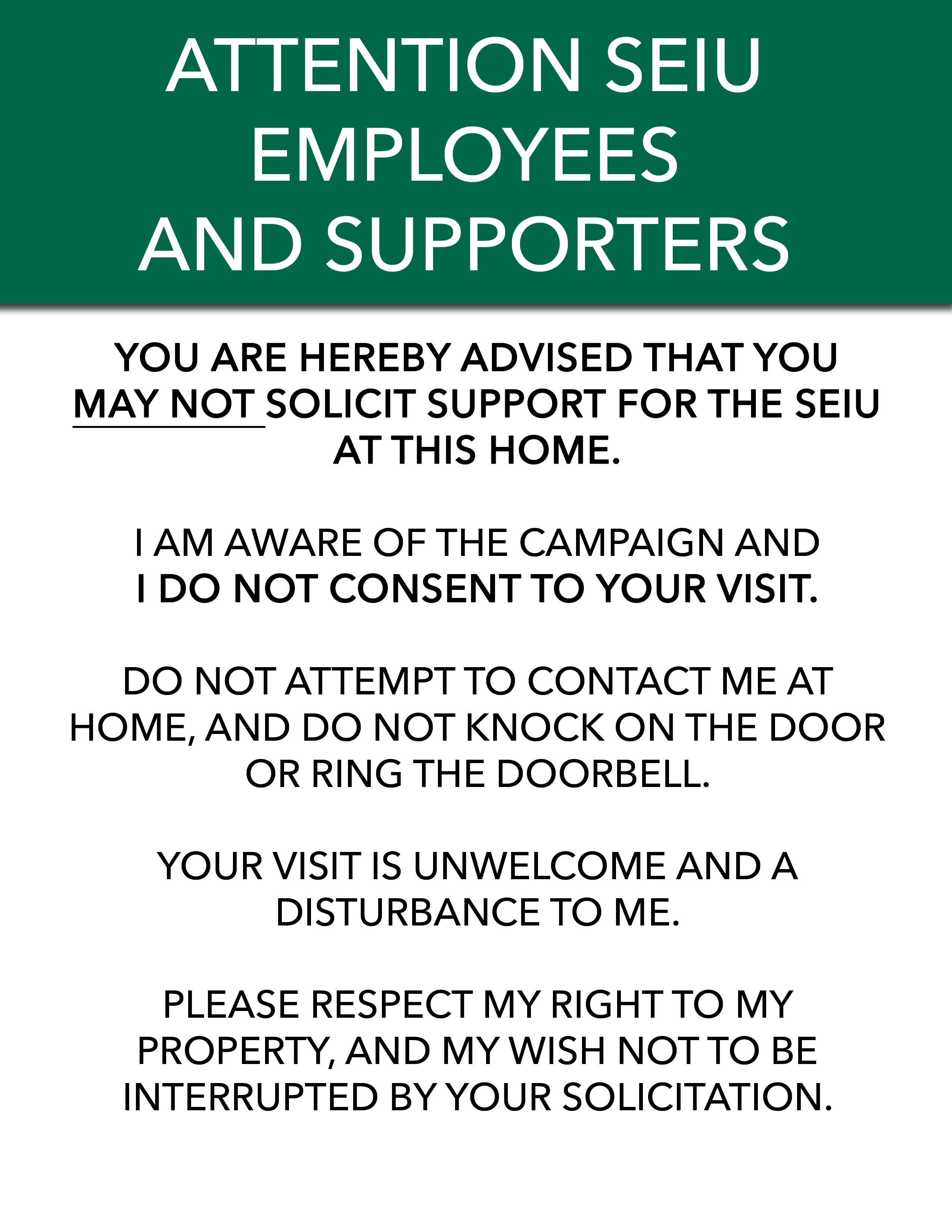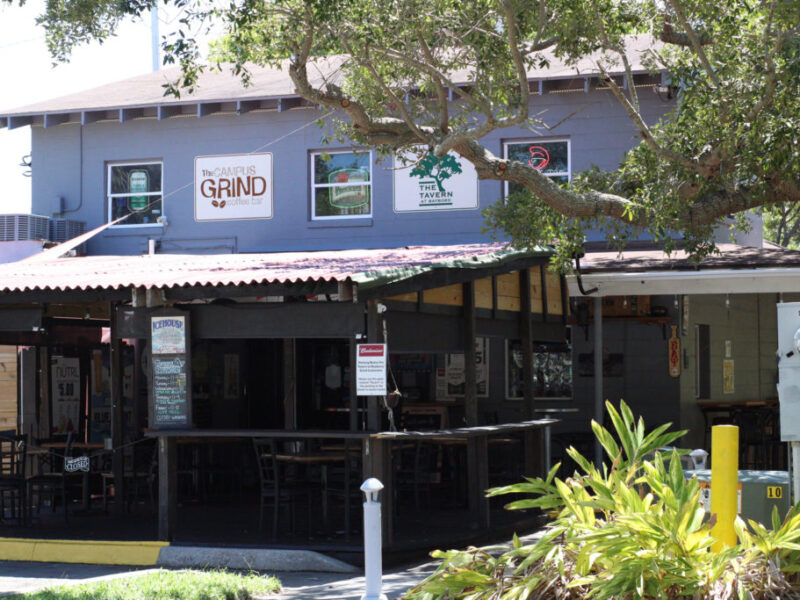Above photo: Cheryl DeFlavis (left), an adjunct at Hillsborough Community College, says a new union there is already improving things for adjuncts. But Olufunke Fontenot, the interim vice chancellor for academic affairs at USF St. Petersburg, warns that the union “has a controversial history of questionable practices.” Courtesy of Cheryl DeFlavis and Georgia College
By Nancy McCann
As a secret ballot election comes to a close, the USF system administration has turned up the heat again in its strong opposition to the unionization of adjunct faculty.
The USF St. Petersburg administration, which has fought the union at every turn, struck Friday with an attack on what it called the “problematic reputation” of the Service Employees International Union.
“This is a union with a controversial history of questionable practices, including serious unlawful conduct,” said an email to adjuncts from Olufunke A. Fontenot, the interim vice chancellor for academic affairs on the St. Petersburg campus. “Is this the kind of union you want representing you?”
Attached to the email was a flyer that Fontenot urged adjuncts to post outside their homes to thwart “unwelcome” home visits by the union and adjunct organizers.

“ATTENTION SEIU EMPLOYEES AND SUPPORTERS,” the flyer says. “You are hereby advised that you may not solicit support for the SEIU at this home.”
In the adjuncts’ drive to form a union, the SEIU has stressed the potential positives of the move and warned early on that the administration would use scare tactics.
Adjuncts at campuses around the country who voted to form unions are already seeing benefits, the union said.
“Sixty percent of first contracts won a raise of 20 percent for the lowest paid” and “71 percent of first contracts included professional development funds, valued at $897,500,” according to information the union provided to The Crow’s Nest.
The election to determine if adjuncts from the three campuses of the USF system can form a union ends at 1 p.m. Tuesday, March 13 – the deadline for receiving ballots set by the Florida Public Employee Relations Commission.
If victorious in forming a collective bargaining unit, adjuncts in St. Petersburg, Sarasota-Manatee and Tampa will be represented by the SEIU in seeking better pay, benefits and job security.
The USF adjuncts are part of a group around the country known as Faculty Forward. This is the third election for adjuncts in Florida in the past year and a half.
Broward College voted to form a collective bargaining unit for adjuncts in December, and Hillsborough Community College adjuncts won the right to unionize in late 2016.
HCC is the first public school in the South to form a union for adjuncts, and the union has already been beneficial, according to Cheryl DeFlavis, 36, an adjunct in her fifth year of teaching sociology at the community college and mother of three young children.
“Even though we don’t have our contract settled yet, there is now more communication from the school to the adjuncts,” said DeFlavis, a key member of the group representing the adjuncts in HCC’s current contract negotiations.
She said there are 20 to 50 people in the room during their meetings: five to seven from the HCC administration, some union representatives and several adjuncts, including any who want to observe.
She said it’s progress that there is a tentative agreement for HCC adjuncts to vote on committees like the institutional, campus advisory, and diversity councils.
Participating in campus life is important and “a big part of it” for those who fought for a union, she said.
DeFlavis said she personally benefited from the union when she was on a “wild goose chase” to find out why her wages were less than expected. “Within an hour” after the union contacted the school she received “an apology and a thorough explanation,” she said.
Initially, HCC adjuncts make $1,940.10 for a three-credit-hour course, and then $2,000.10 after eight semesters, said DeFlavis. She said the adjuncts are aiming at a 20 percent increase in pay.
“When we met about two weeks ago, a 9 percent increase in wages was proposed,” she said. “We are saying that’s too low.”
DeFlavis, who is teaching three classes this semester, said she is not surprised or disappointed that the contract negotiations are still underway more than a year after winning the union election.
“We knew this would be an endurance race, but we have made incredible strides,” she said. “We are organizing adjuncts that are very isolated. It’s incredible we made it to this point.”
Although union organizers warned adjuncts from the beginning that the school administration would “pump them full” of information to try to “scare” them about forming a union, DeFlavis said, “I know eventually we’ll get something.”
USF system adjuncts fighting for the right to have a union also have been undeterred by the strong opposition of USF system President Judy Genshaft and the university administration.
A March 6 email sent on behalf of Fontenot urged adjuncts to vote no in the election, warning that some adjuncts could end up with lower salaries as a result of union negotiations and that unionization could hurt “efforts to provide superior education to the students we all serve.”
The email described collective bargaining as a “risk” that would be certain to change the relationship between adjuncts and USF.
That same message was delivered by Katherine Lev, a Boston consultant hired by the administration to meet with adjuncts and appear in an eight-minute video that was emailed to adjuncts.
On March 3, The Crow’s Nest sent a public records request to the administration asking what Lev was paid. As of Friday, the administration had not responded.
Either party can file post-election objections up to 15 days after votes are tallied on March 13. If they are unsuccessful in winning the right to unionize, adjuncts would have to wait one year before petitioning again.
When asked what she would say to USF system adjuncts who haven’t voted yet, DeFlavis said, “What have they gotten without a union?”
This article was updated at 6:30 p.m. on Friday, March 9, 2018.




The best justification for a union for adjuncts is a simple one: “An adjunct’s grade of ‘A’ or an adjunct’s grade of ‘F’ counts the same on a student’s transcript as the same grade given by a tenured professor.” The primary equality speaks for itself. Don’t let the Administration or its proxies deter you from getting what you EARN every class you teach!